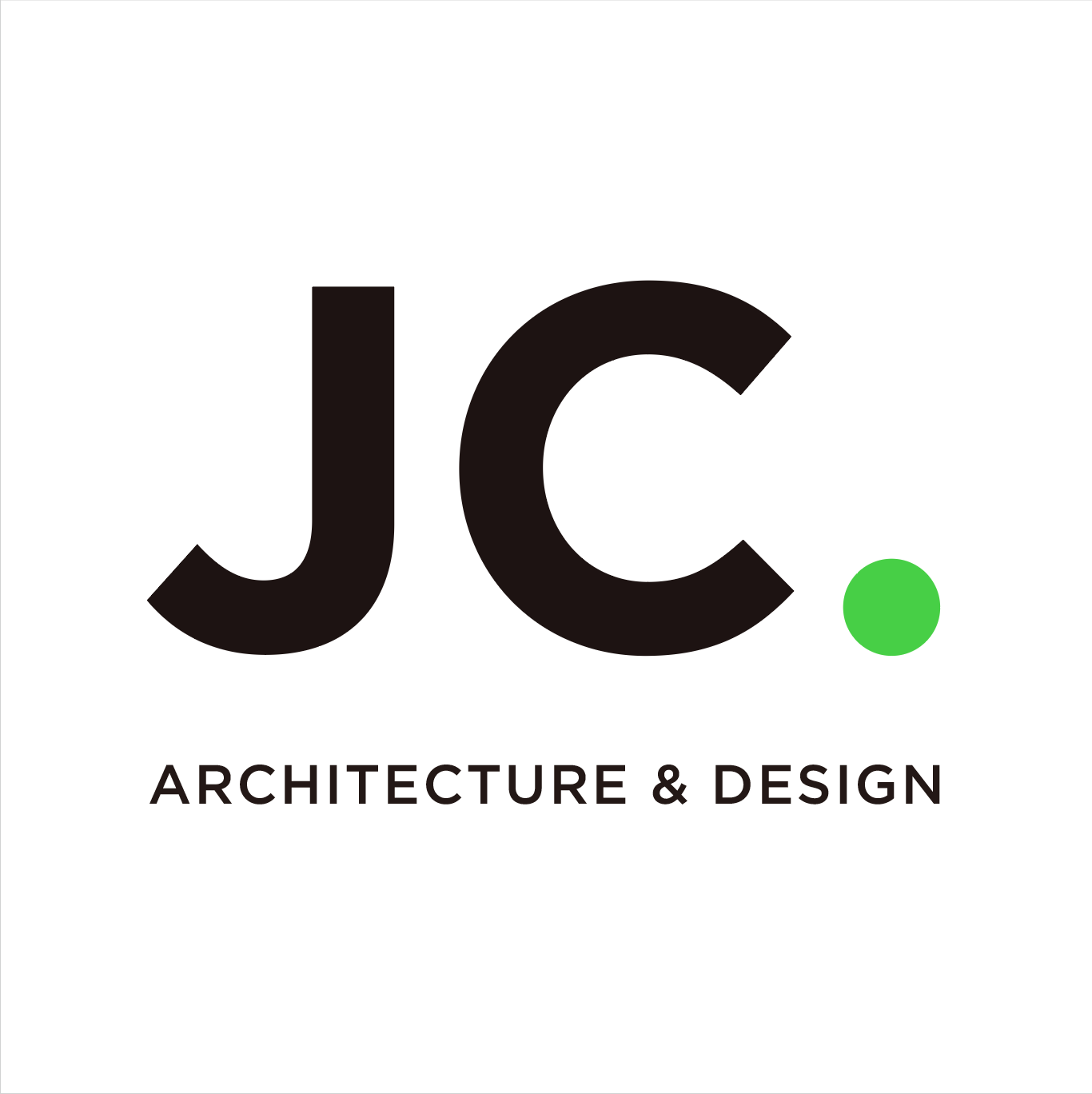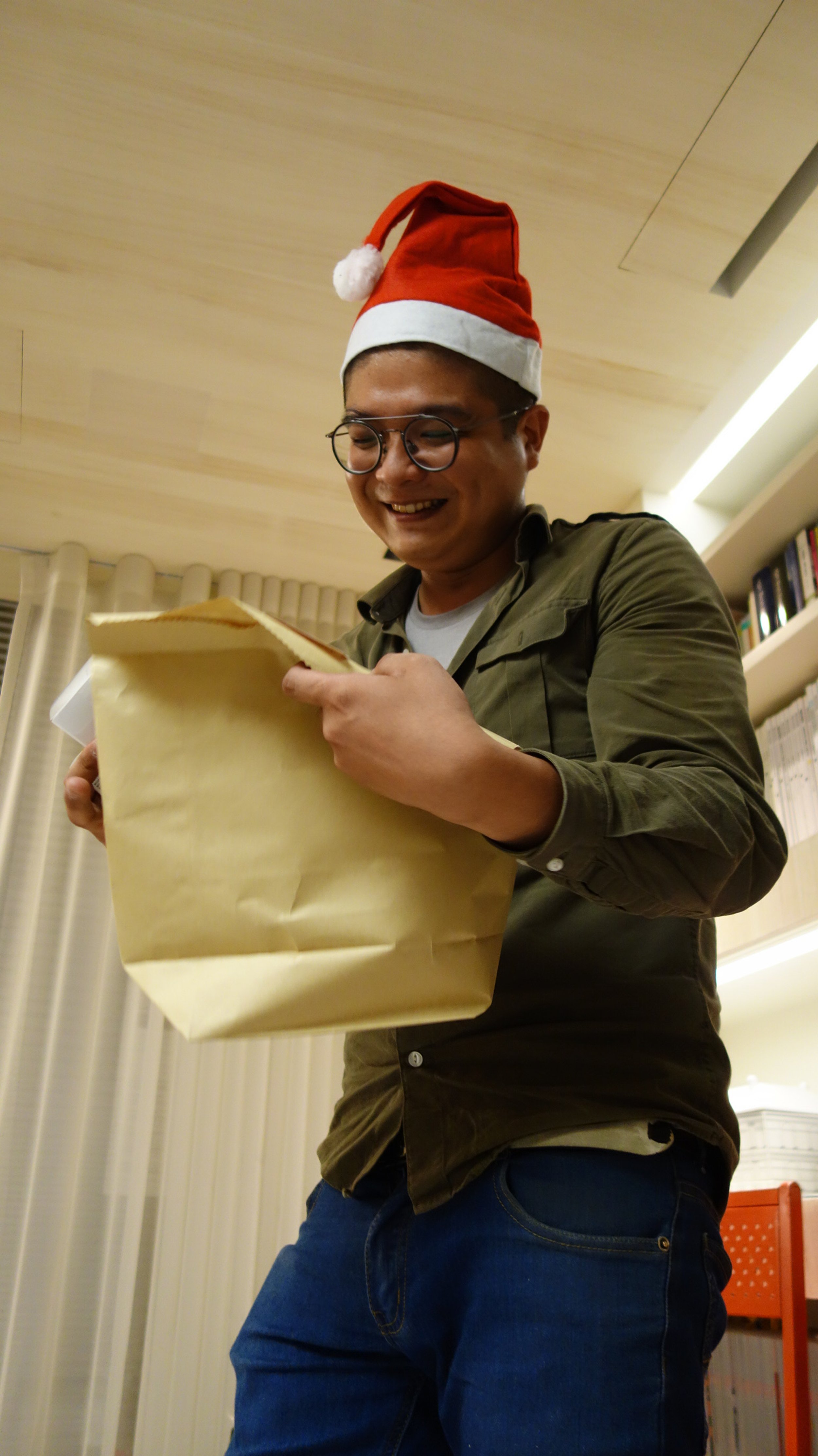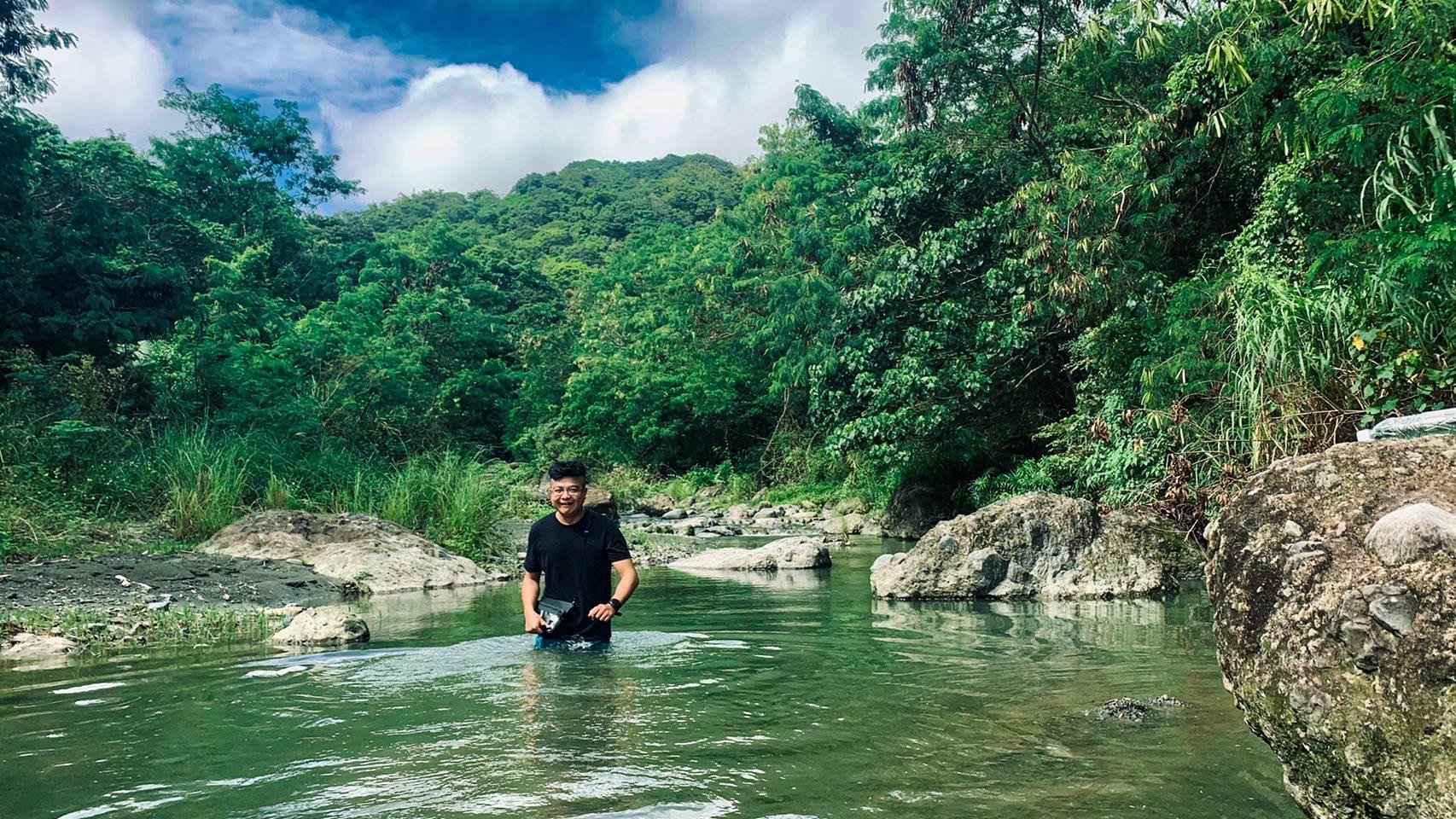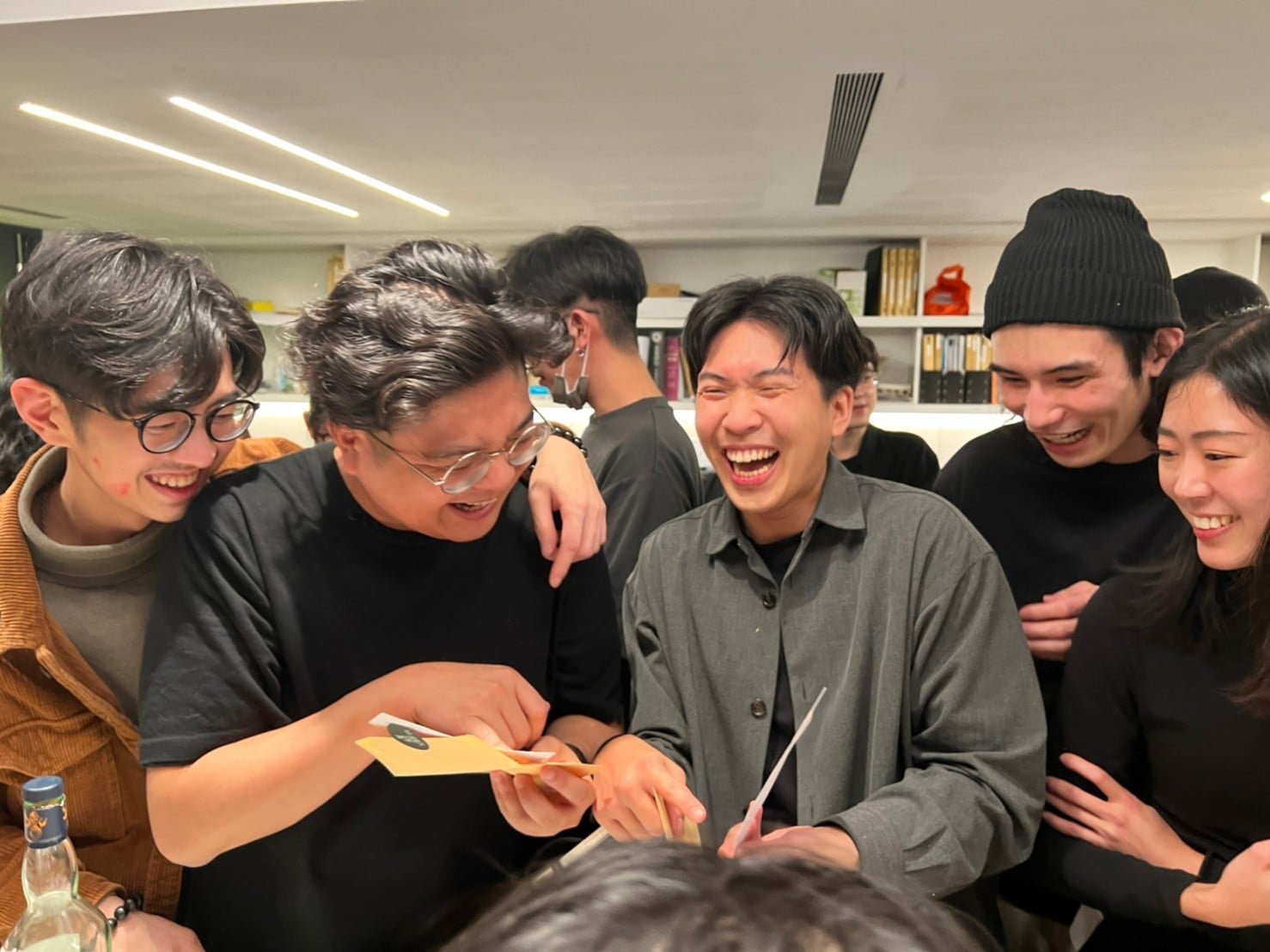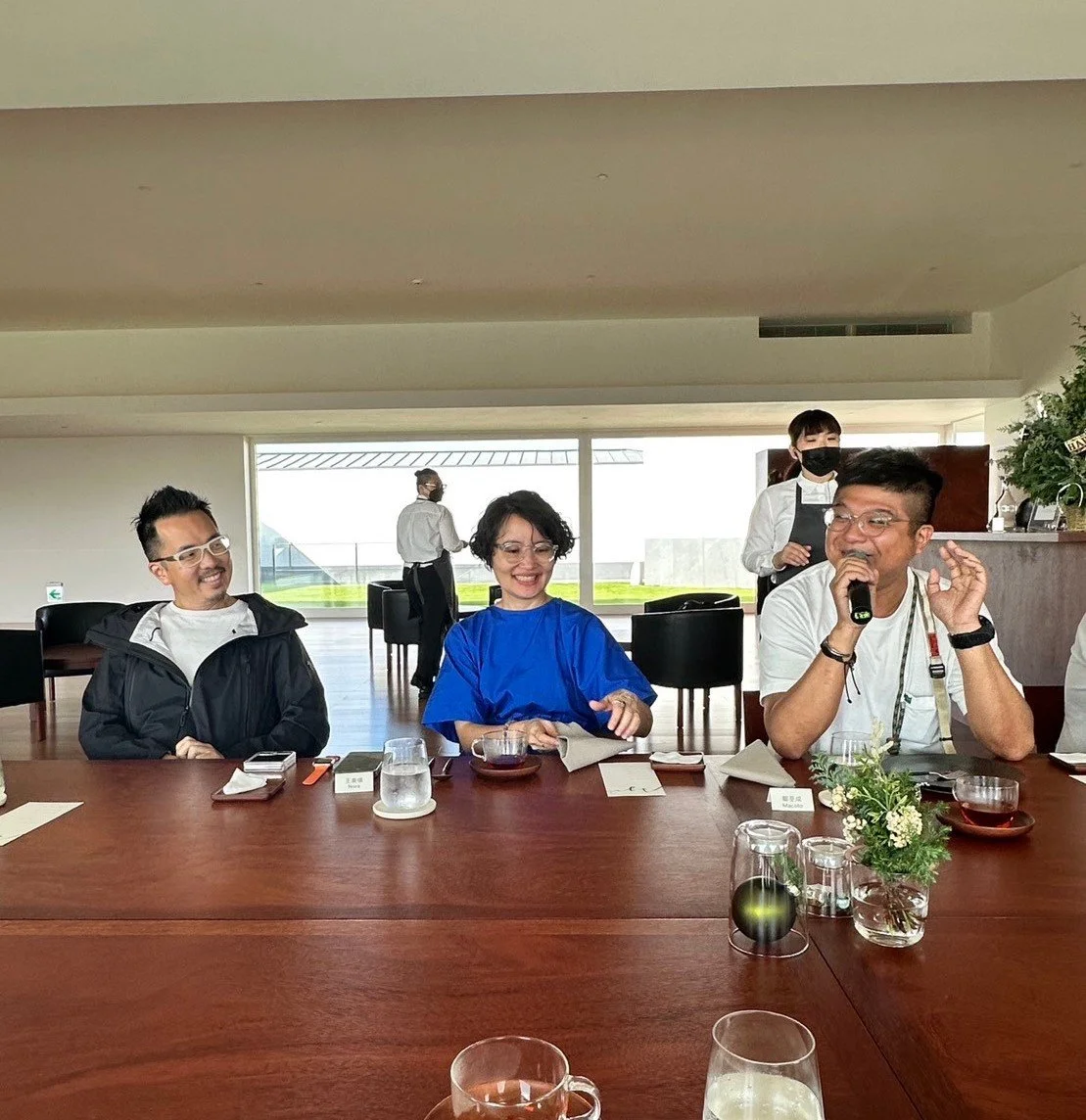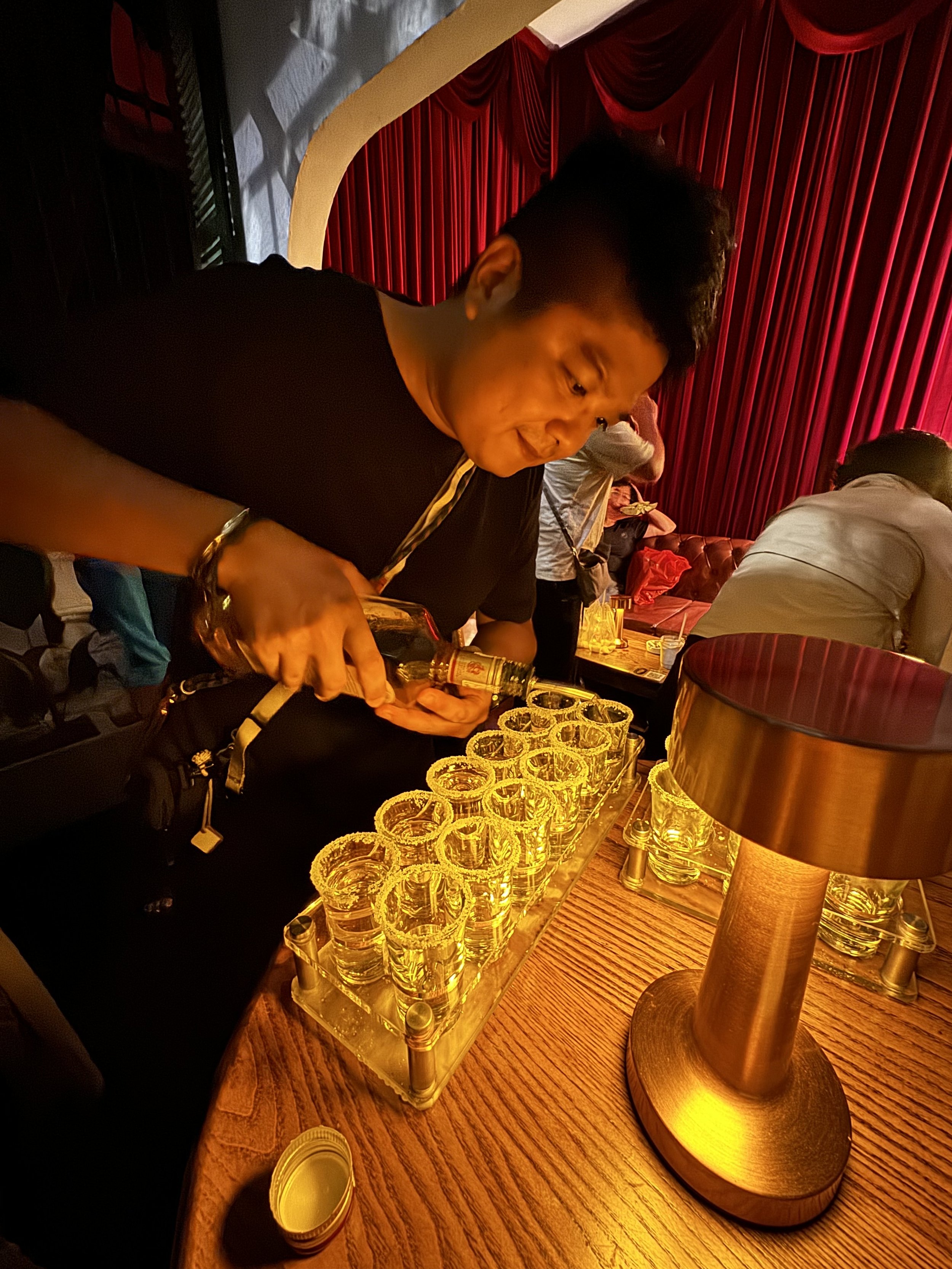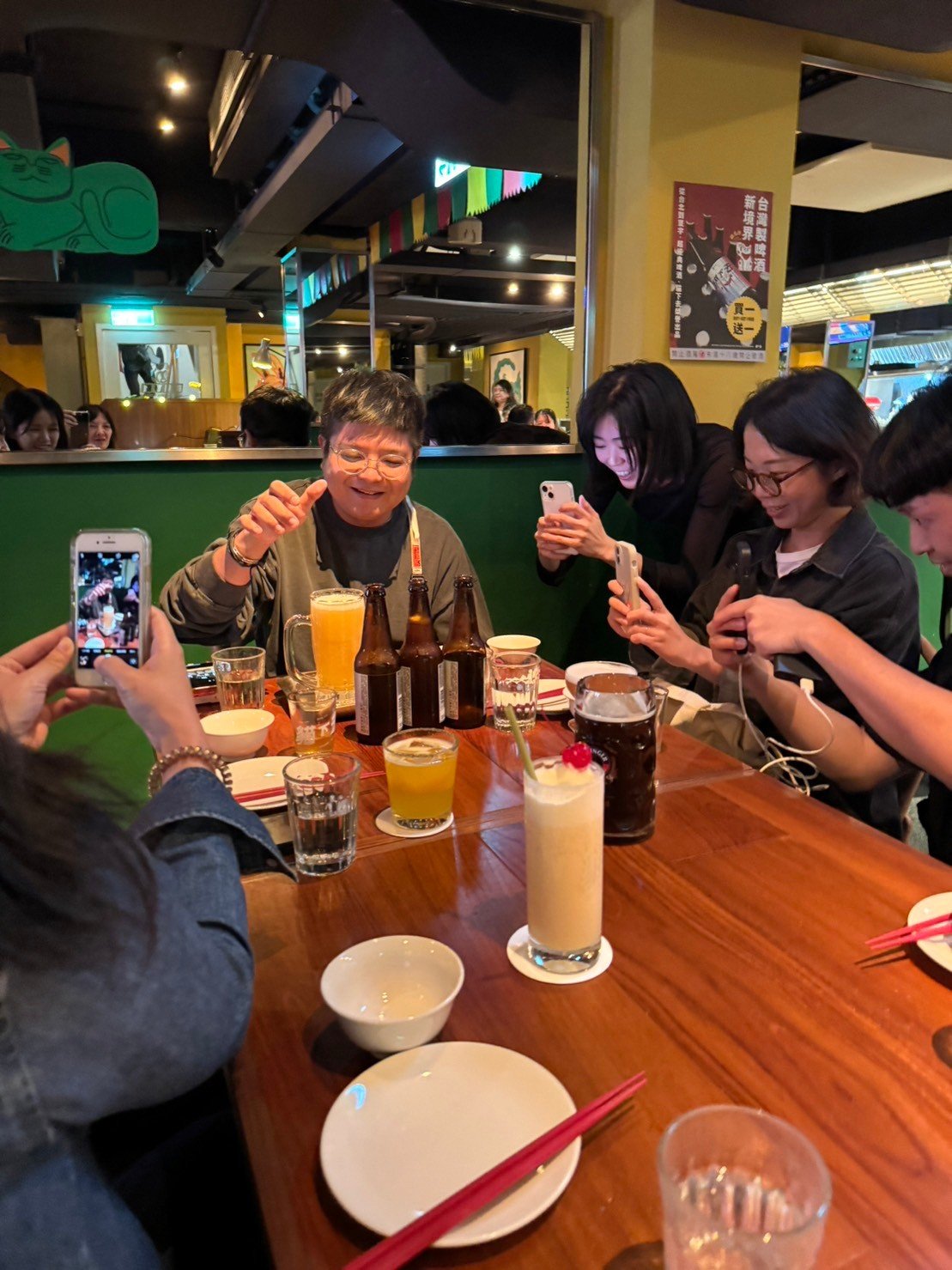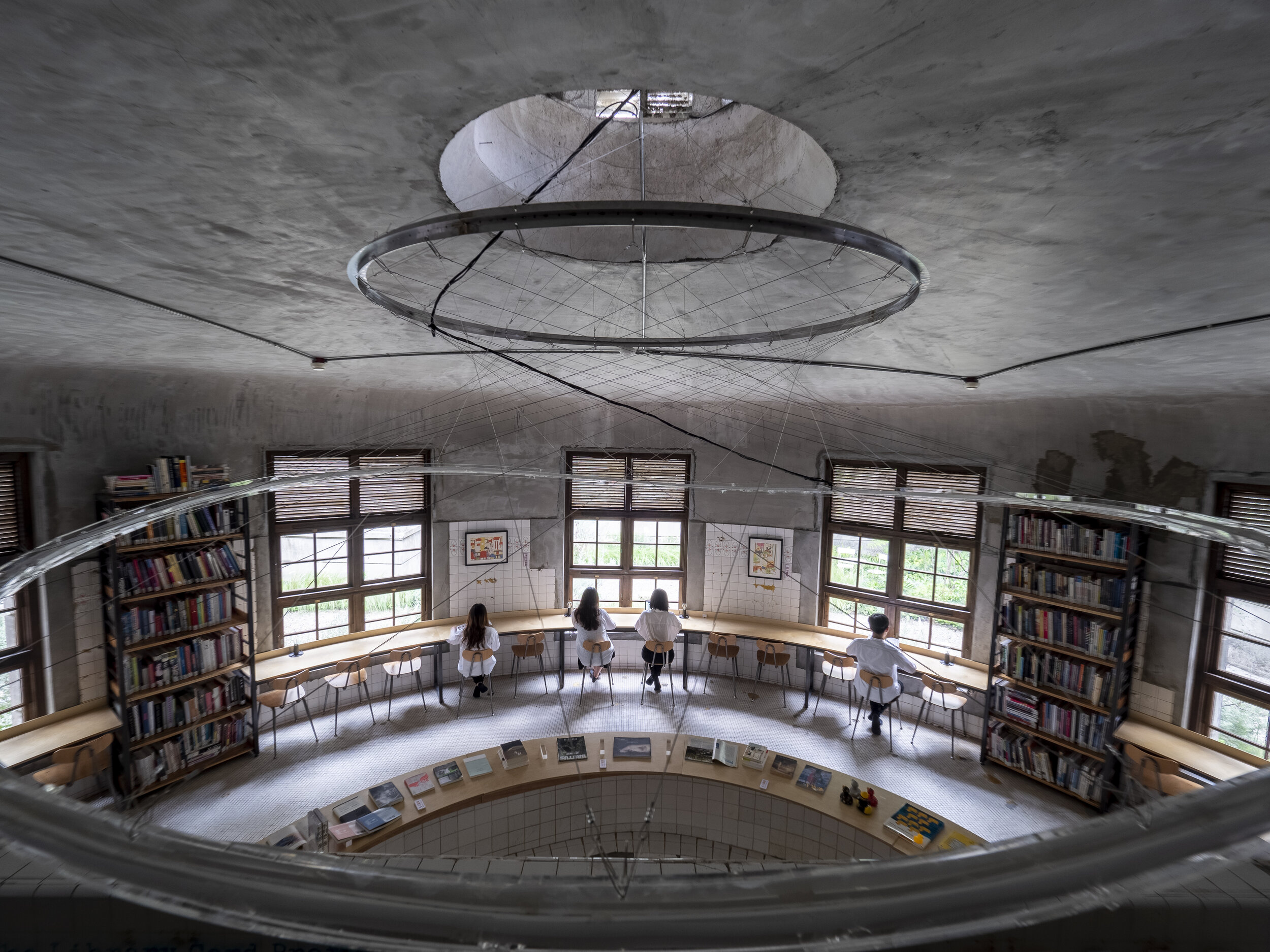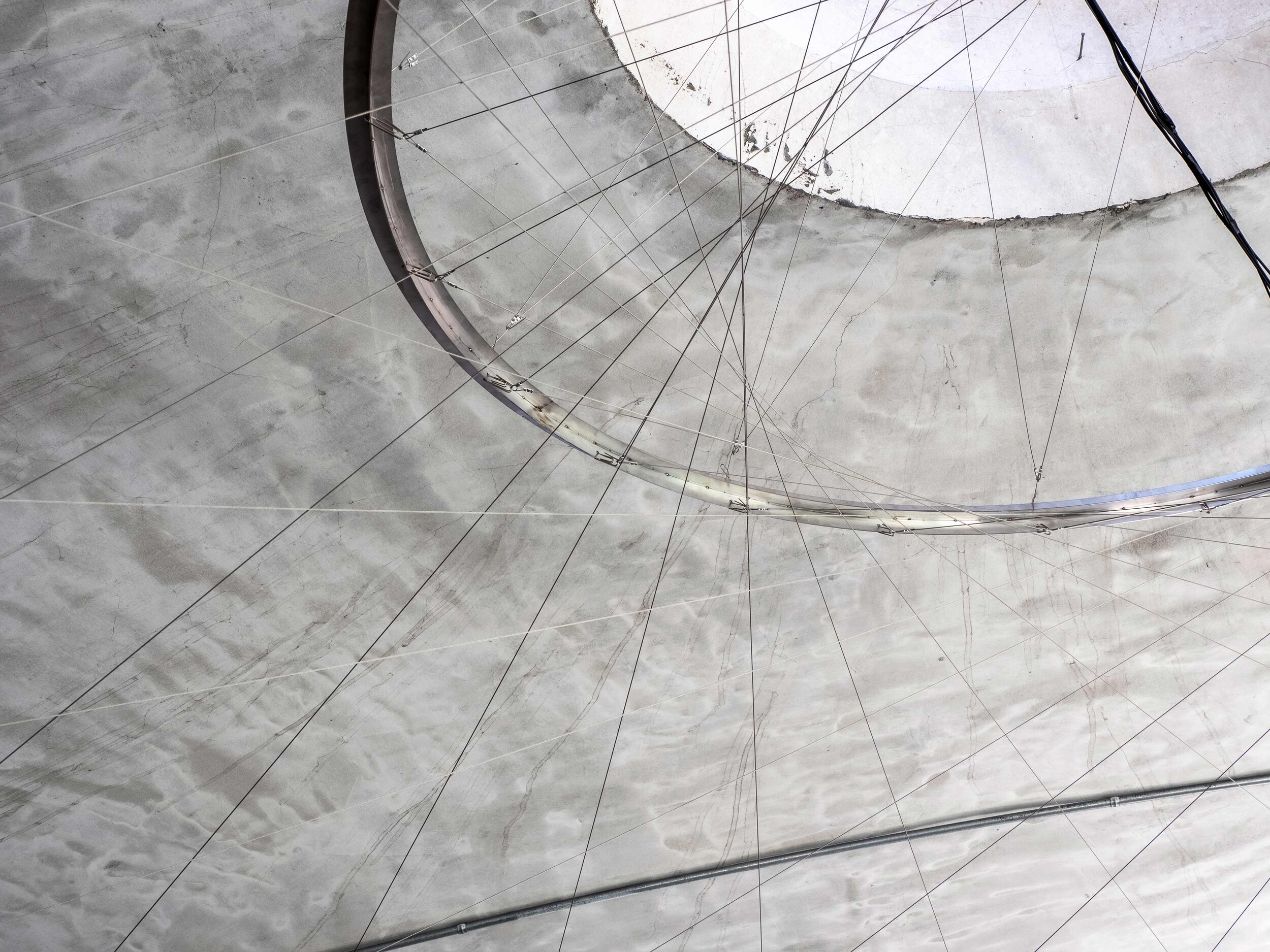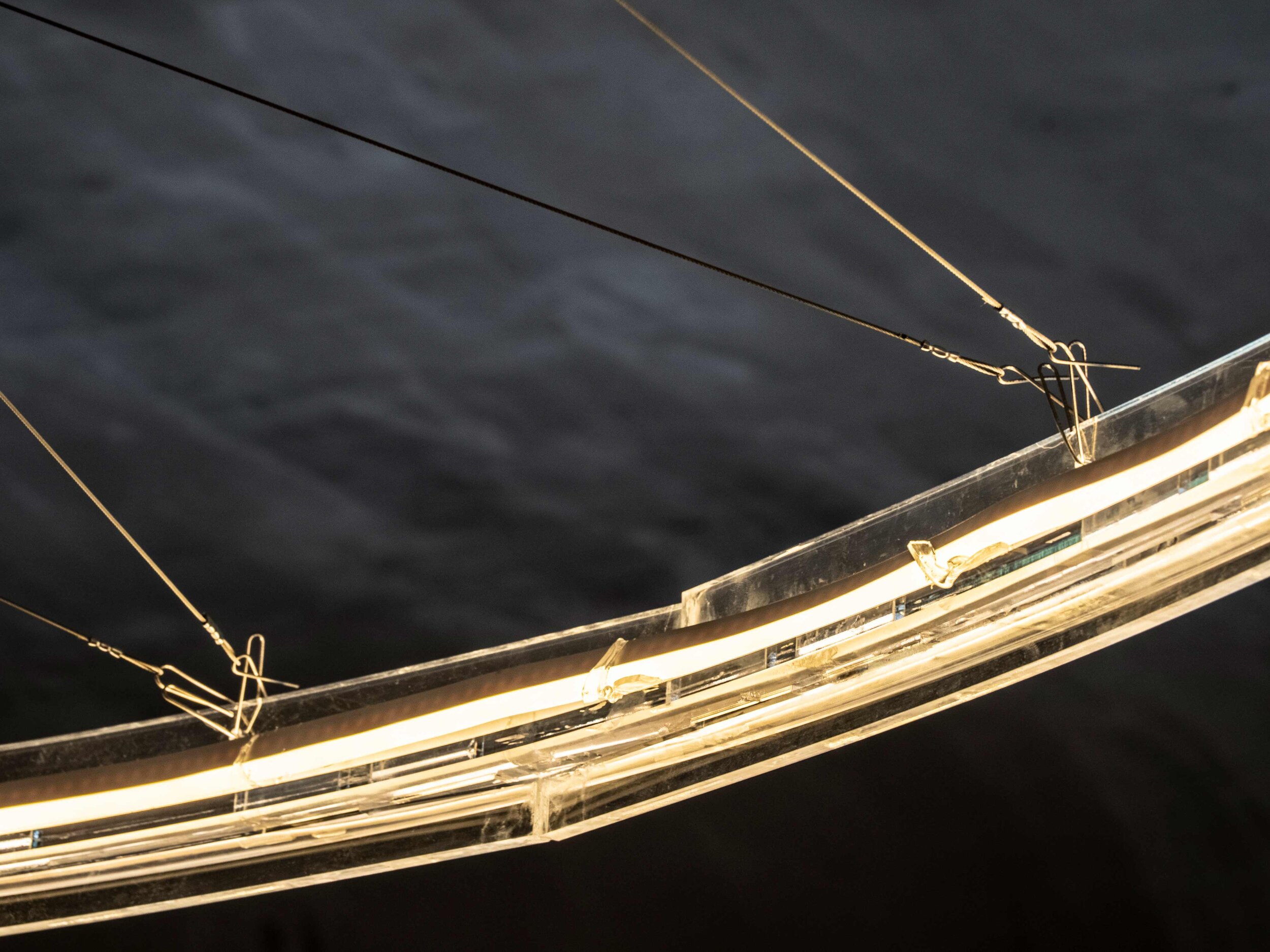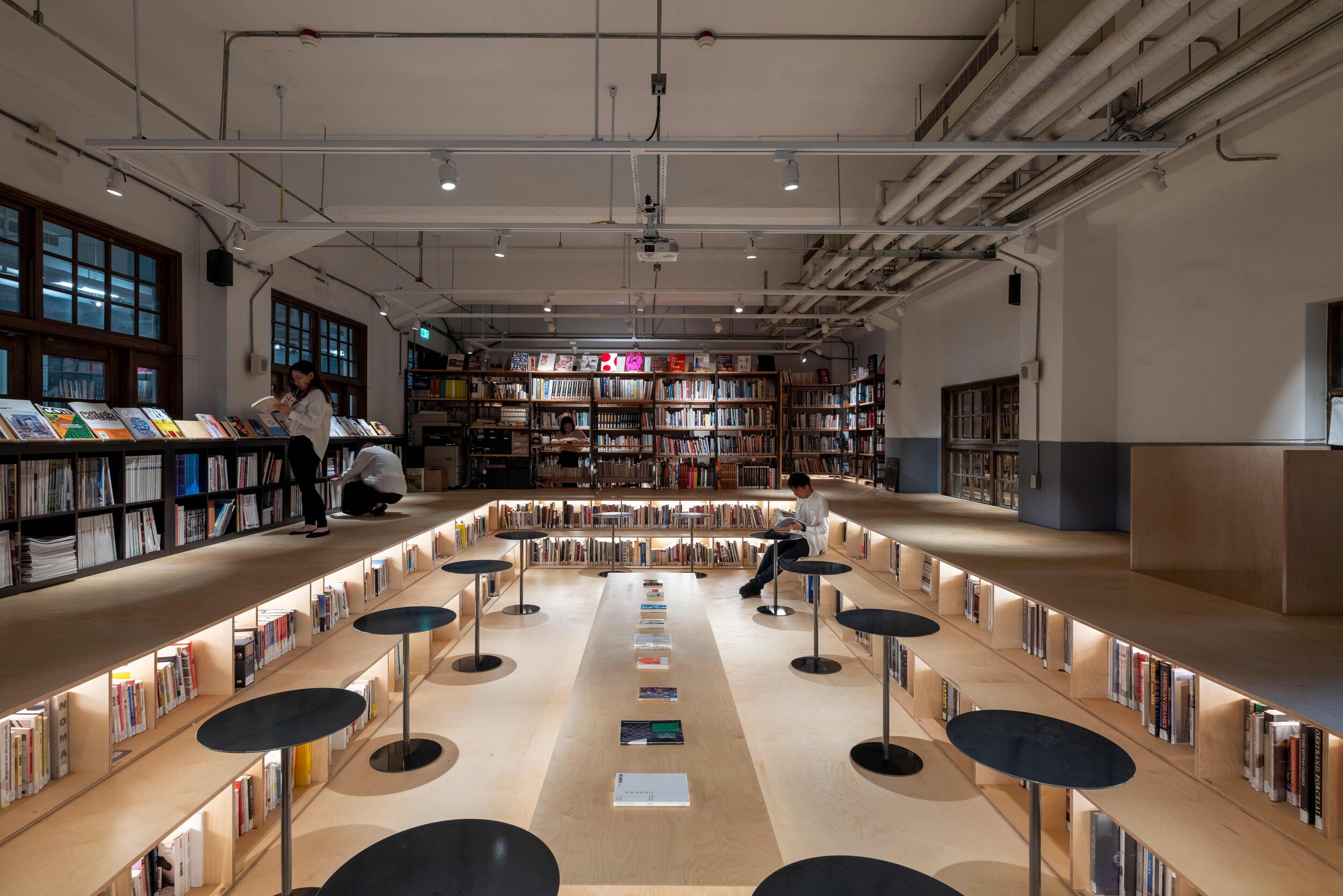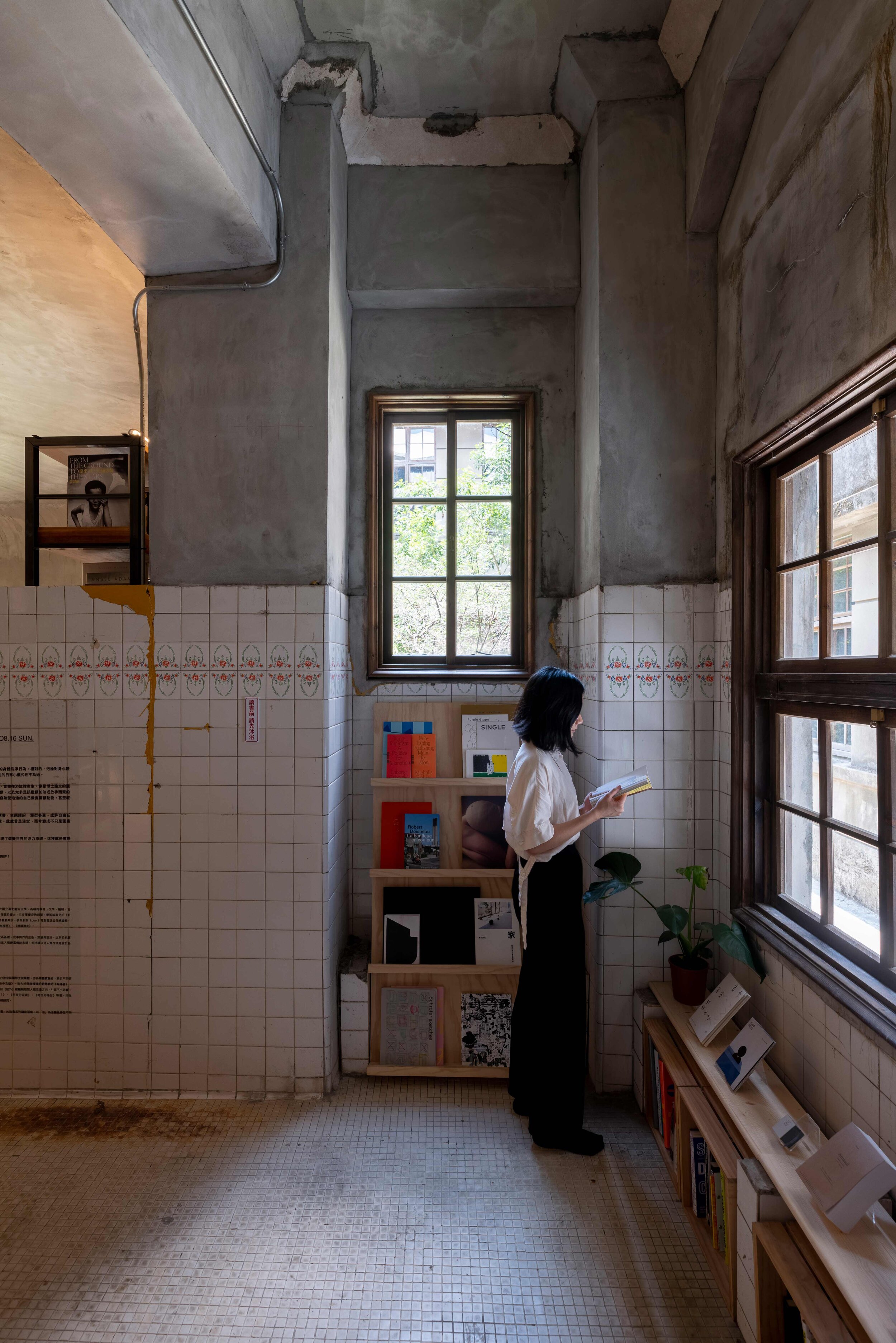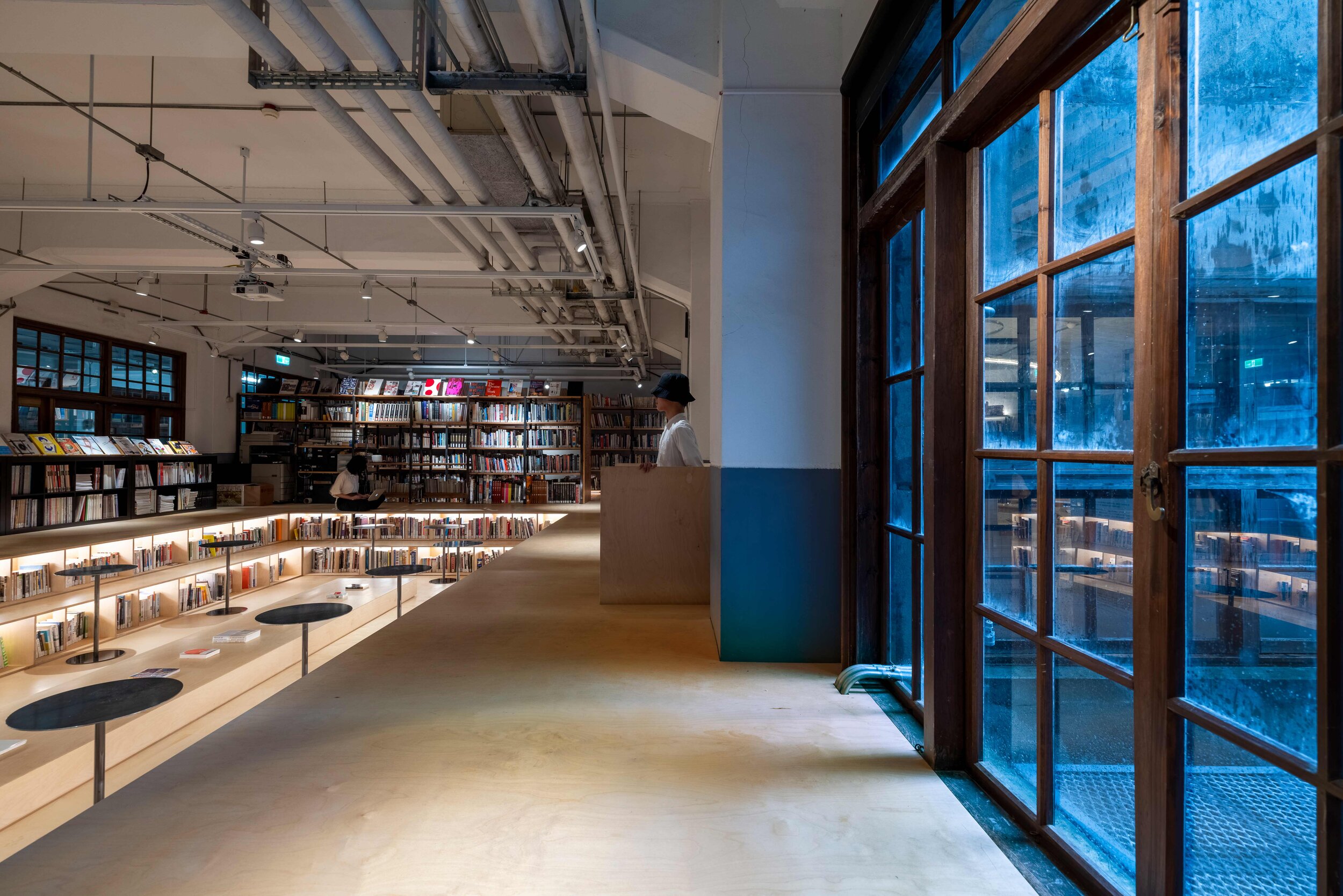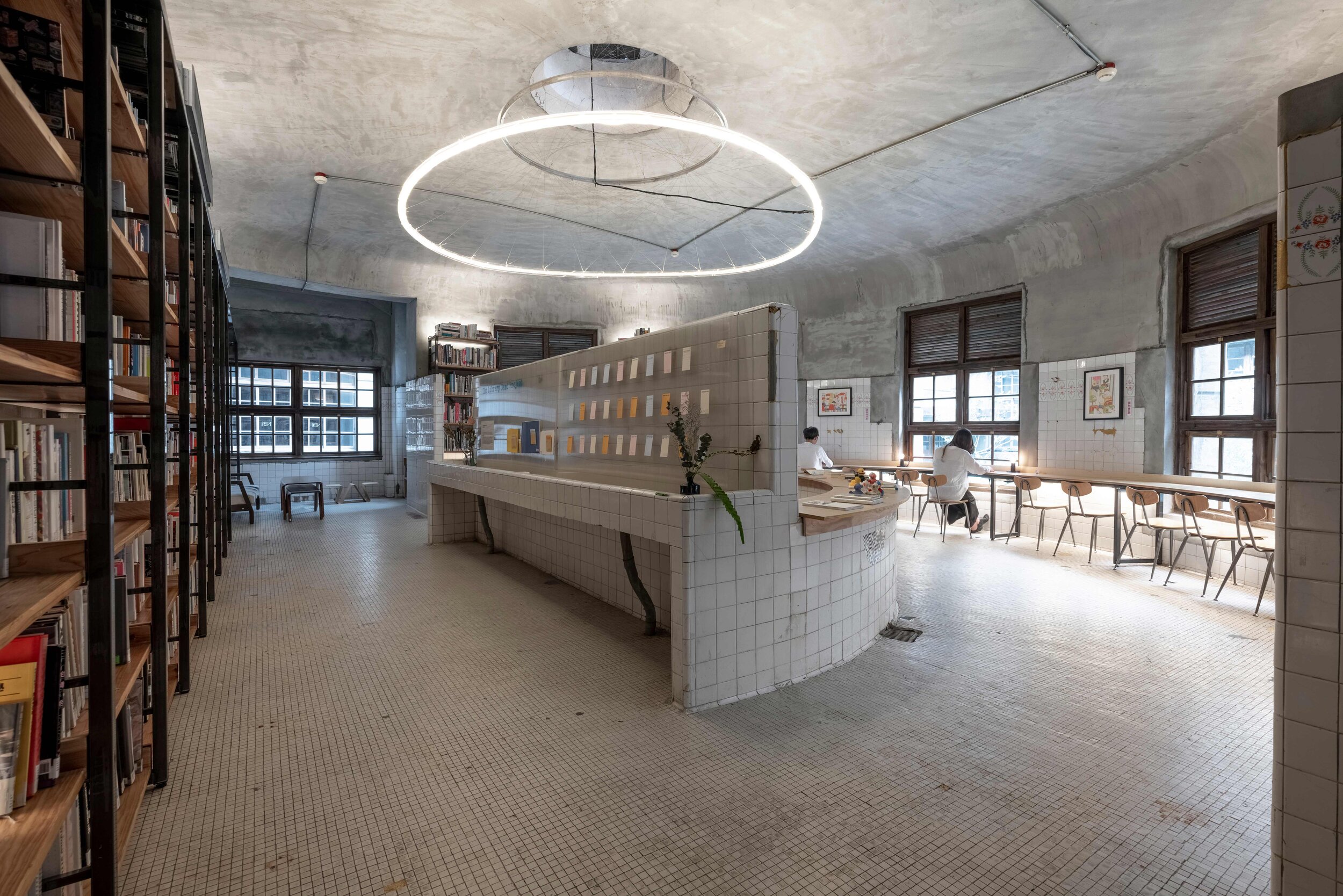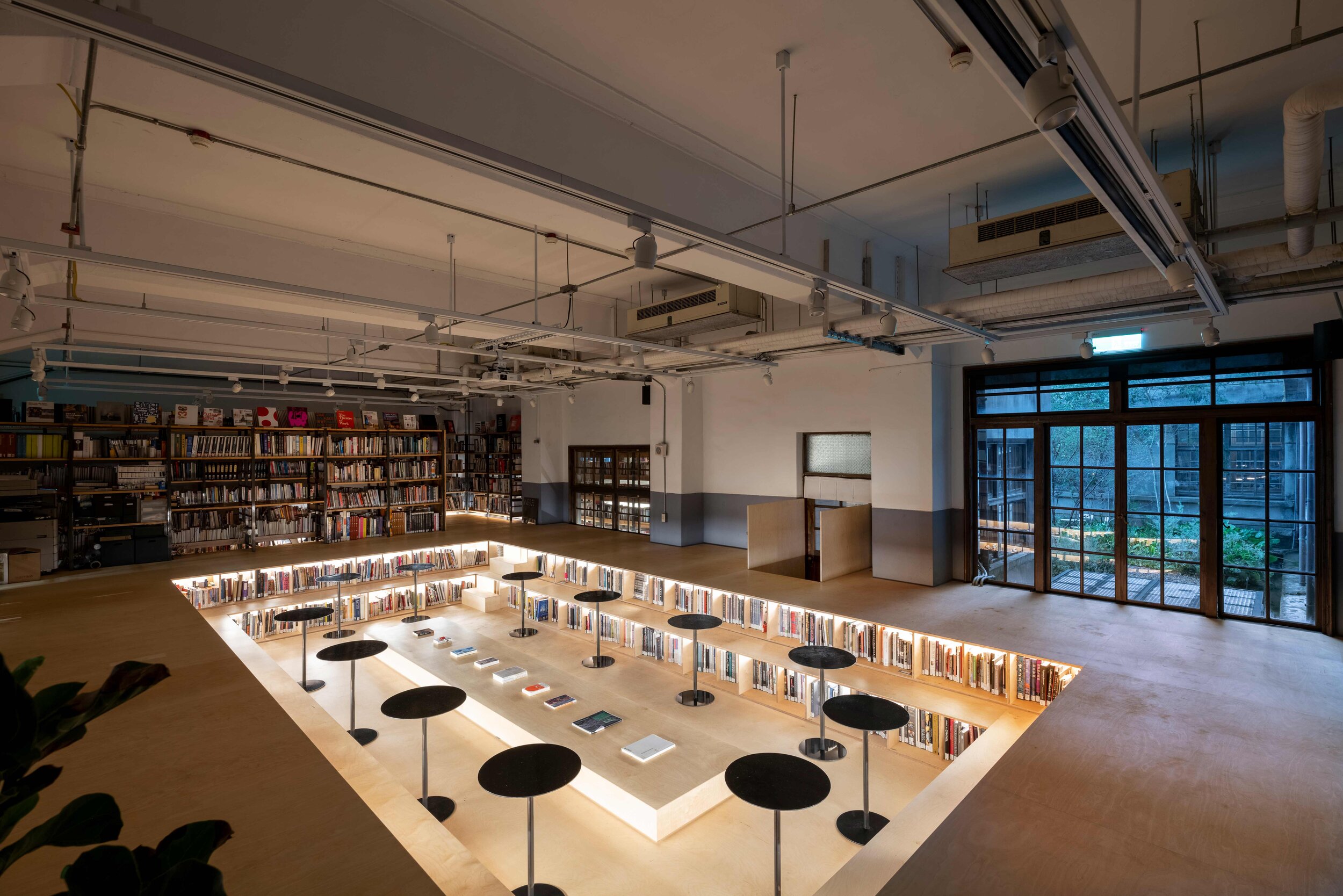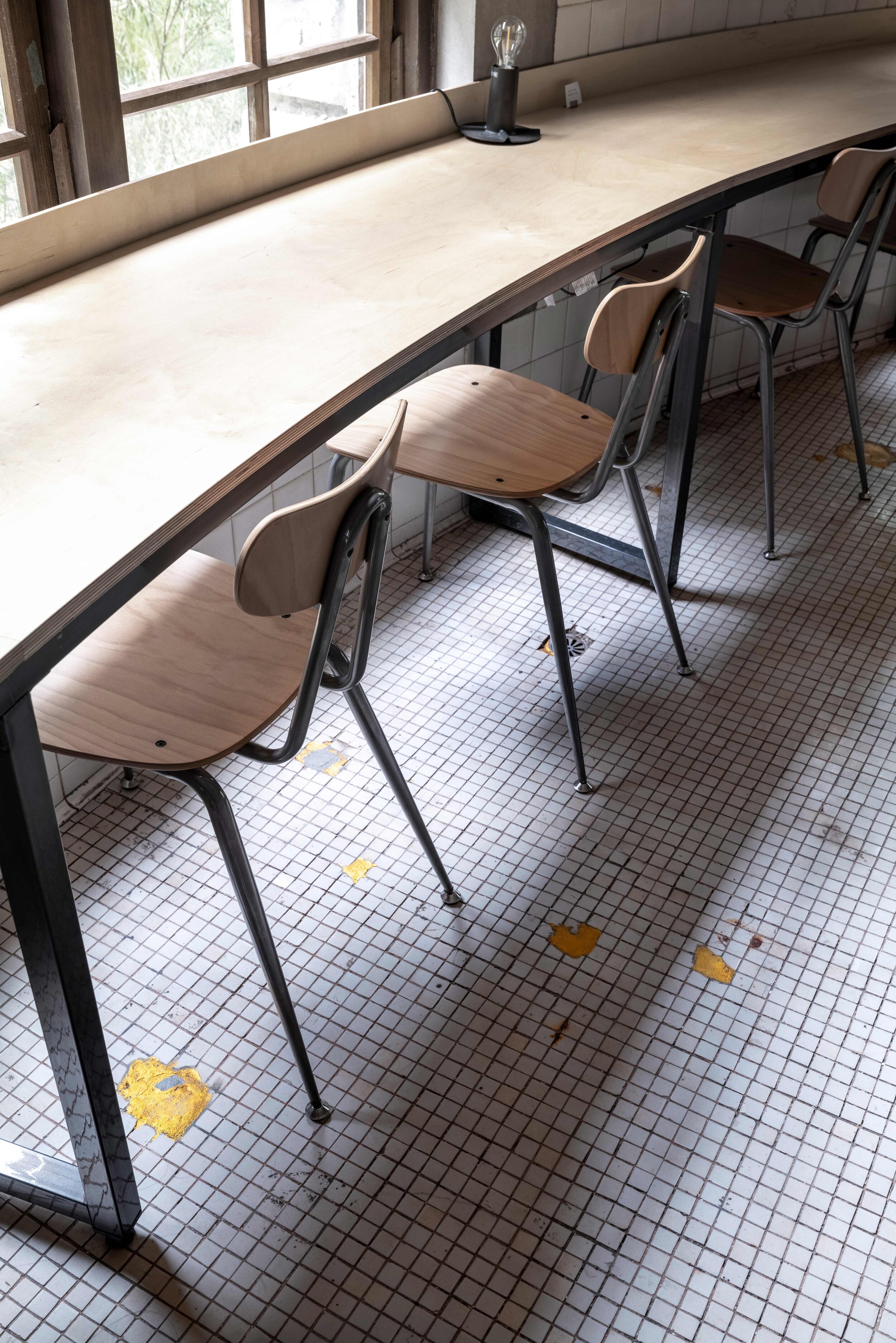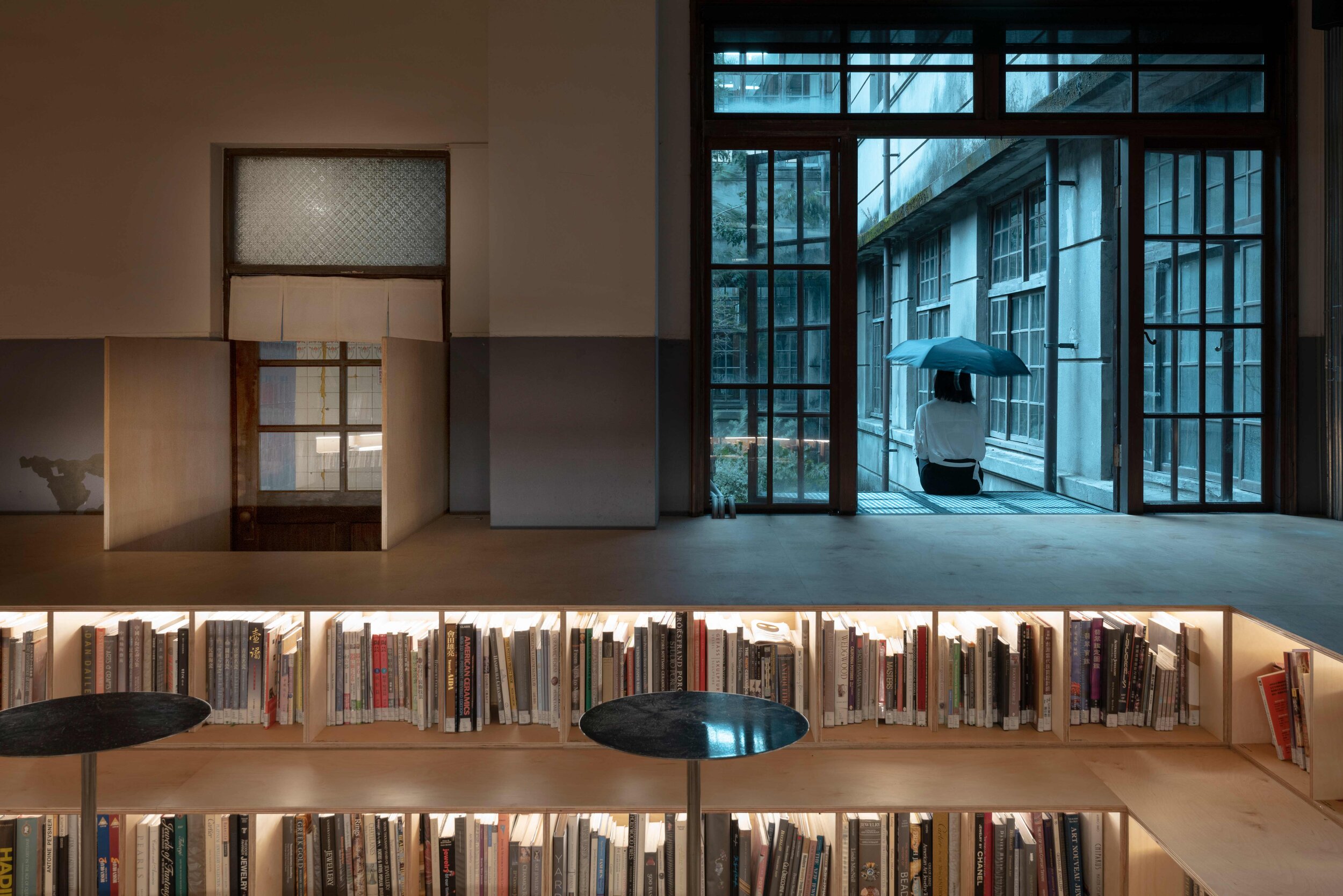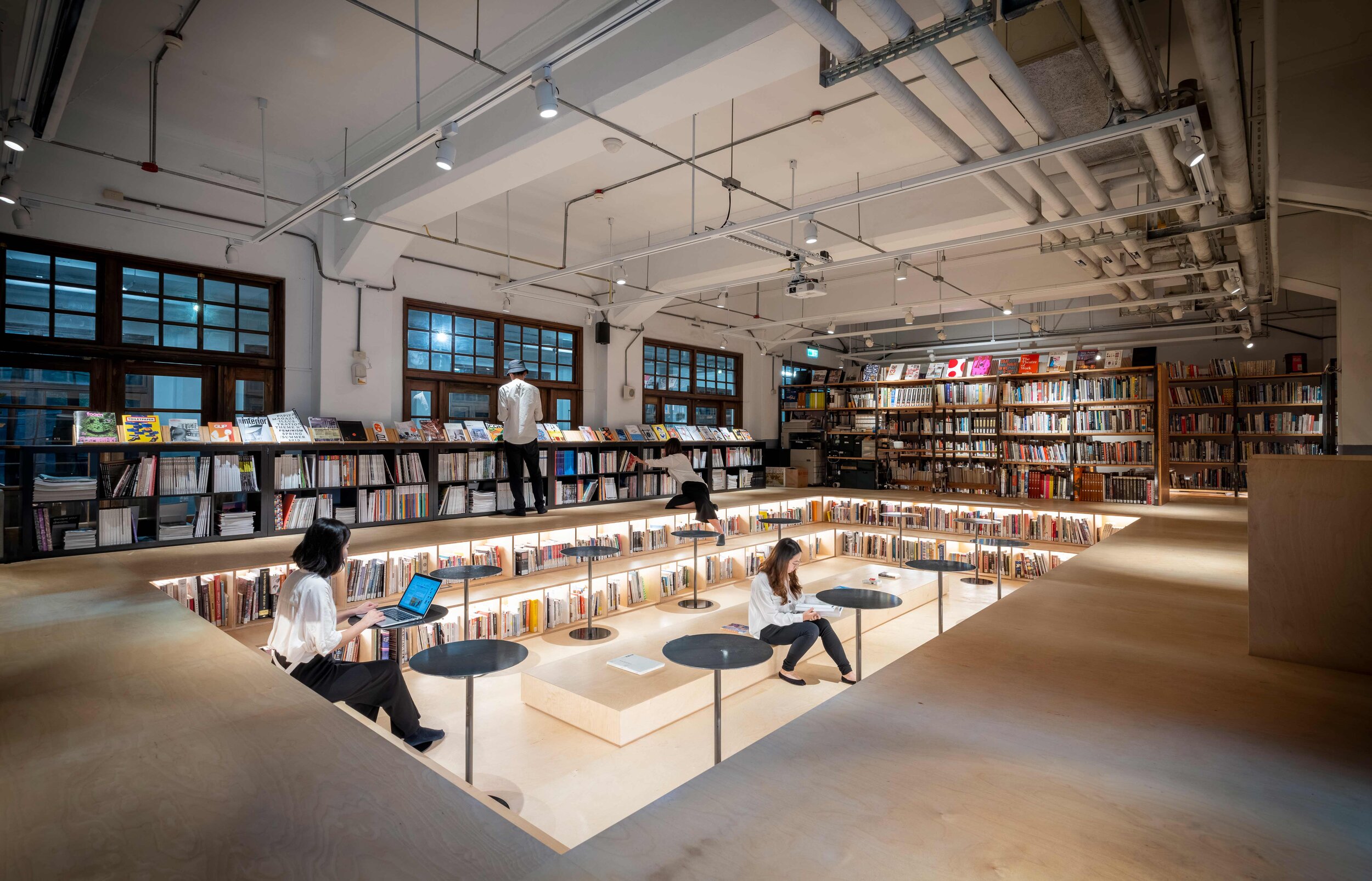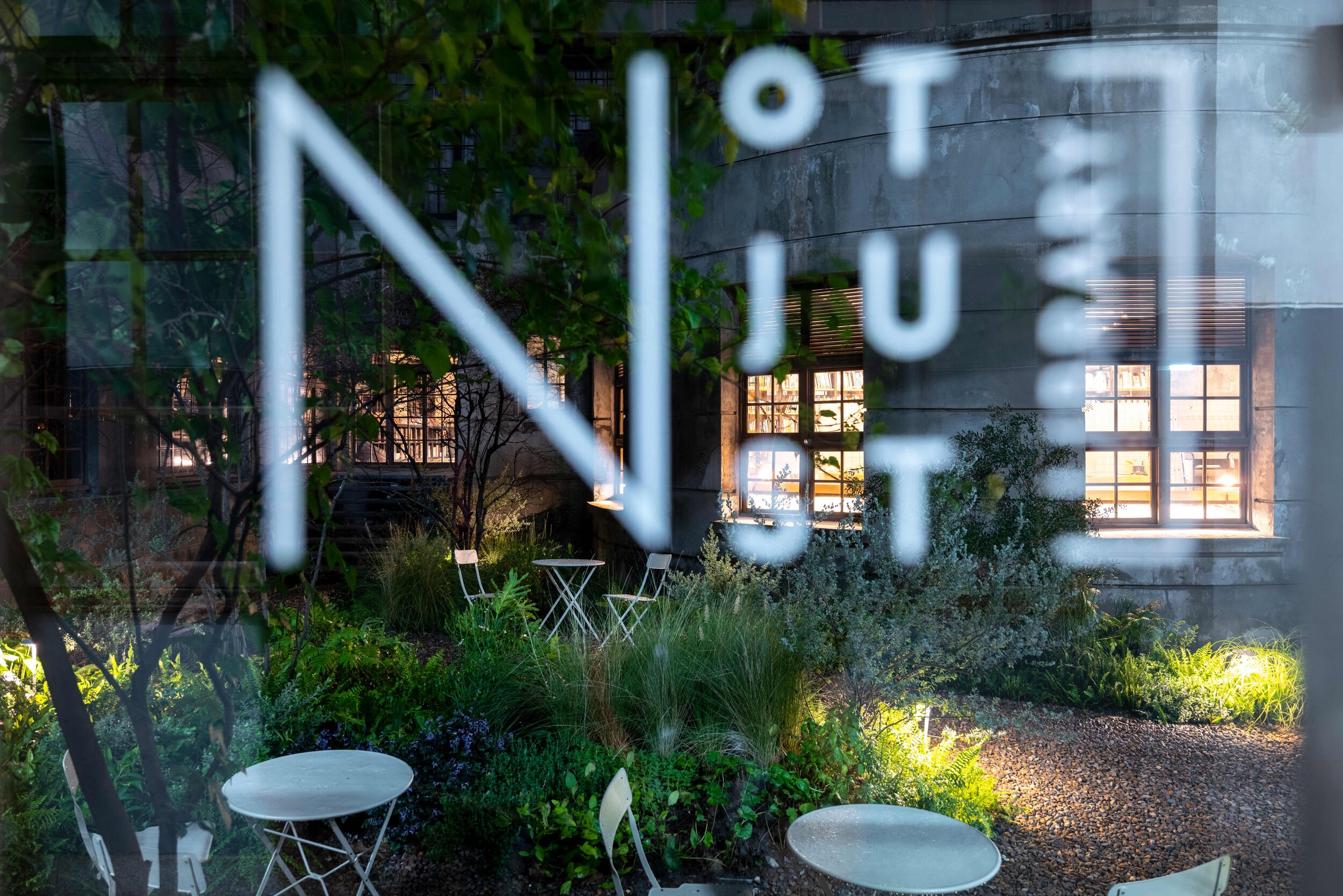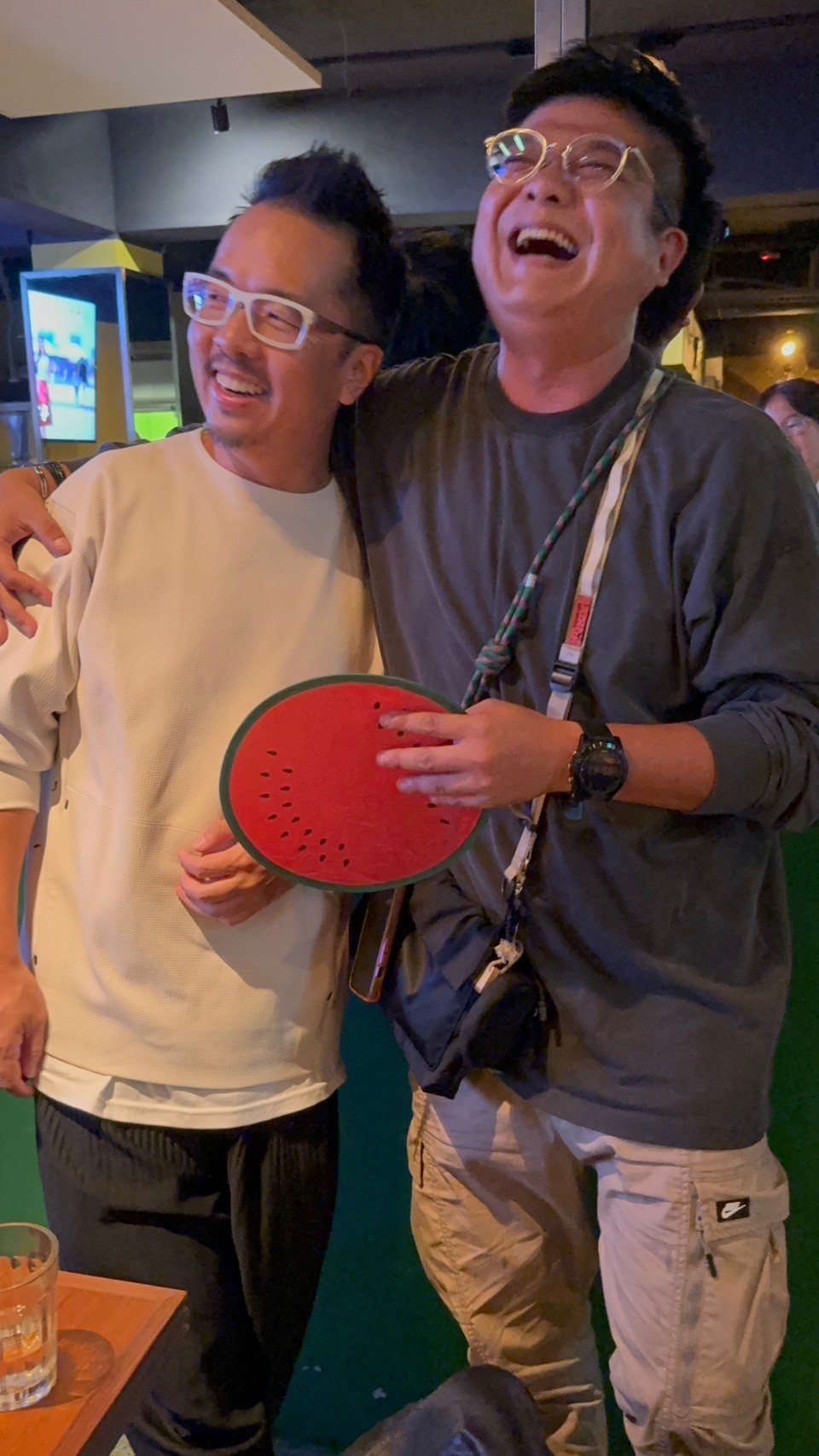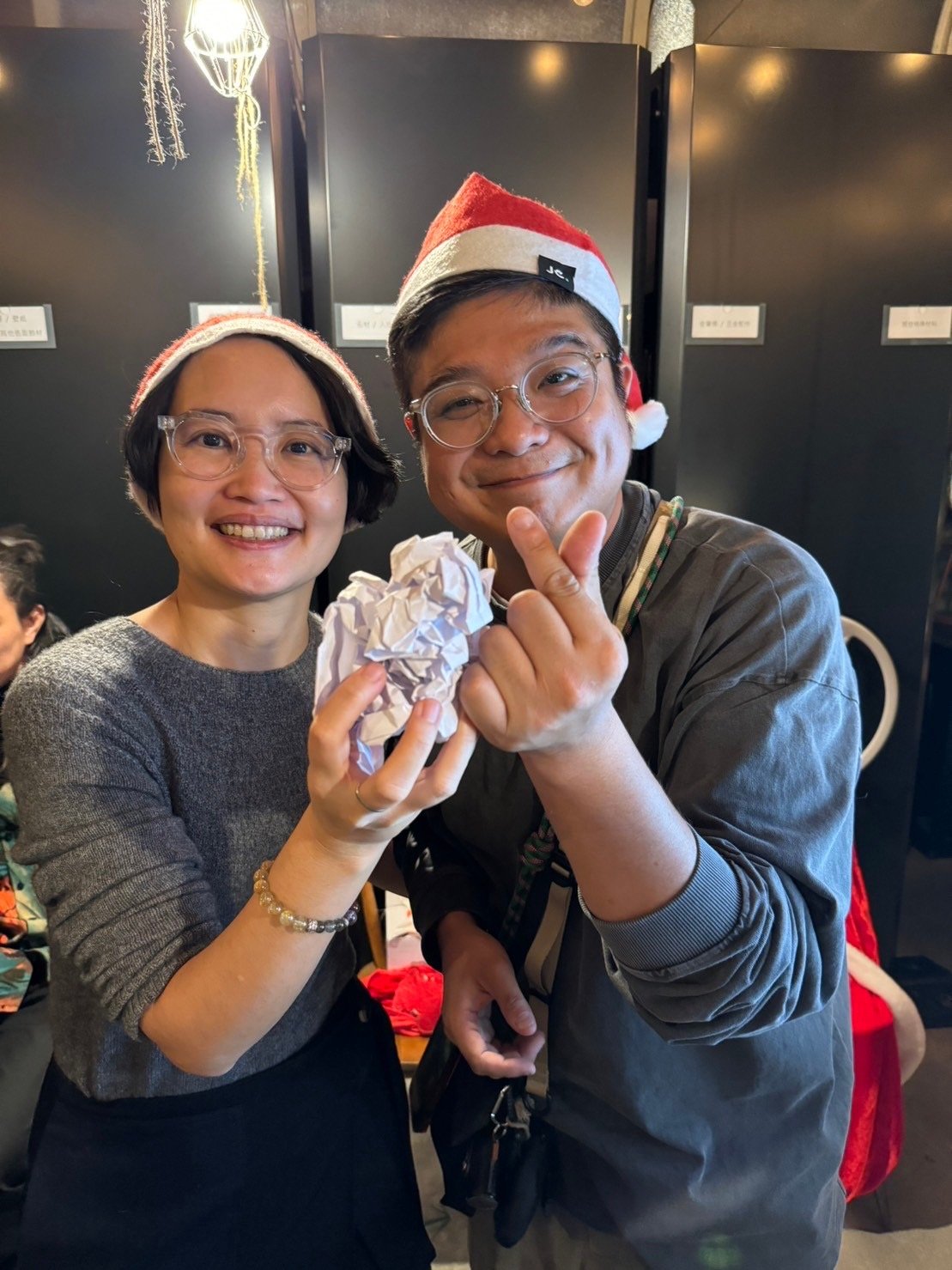Vol. 1
How to find the ideal company? What type of people is or isn’t a good fit for JC.? Is sustainable design a false proposition?
1:Let's talk about your past so we can get to know you!
I have attended art school since elementary school and graduated from Fu-Hsin Trade & Arts School. I began working at the age of 18. At first, I wanted to be an artist but realized that artists would starve to death, so I chose interior design. My father was in the interior design business, so I've been exposed to these things since I was a kid. In terms of experience, I didn't graduate with a bachelor's degree, but I have more practical experience.
My first company was a construction engineering company with a carpentry factory on the first floor and a design office on the second floor. Then, I worked at about seven or eight design companies. Every year, I would change companies to learn different things. I would consider switching companies if there's no room for further development.
The smallest company I've ever worked for was one with only three of us, the boss and I. It was more of a one-stop shop, where I had to start from the beginning of the project, sign the contract with the client, and design the project until the end of the project. I prefer small companies to large ones because the division of labor in large companies is particular. If you join a company today to do 3D drawings, you will probably be doing 3D drawings for the rest of your life, and you won't be able to cross over to different fields and try other things.
2: Why did you choose to join JC. Architecture & Design?
After working at seven or eight companies, I started to think about what kind of working environment next. My Fu-Hsin Trade & Arts School teacher also gave me advice; he said, "Look for a company that will win awards." I started to look for companies that had won TID (Taiwan Interior Design Award) awards and whose work I liked.
My previous experience was mainly in residential design, and I had less exposure to commercial space. When working in a company with only three people, I had the opportunity to work on commercial projects. My boss thought I was a good fit for that direction, so I looked for more commercial space design firms.
I discovered JC. through TID and looked at past awards, not just from one year but from all the years. Although my educational background may not be ideal, I still wanted to try it.
When I first came to JC, I had three interviews before I joined. Because JC. might emphasize academic qualifications (e.g., university graduates) and foreign solid language skills (the founder was a returnee from a foreign country), I had to go through three interviews to get in. During the three rounds of interviews, we chatted and looked at my previous works to assess what the company needed and what I wanted.
3:You have been working at JC. for nine years! Why are you still passionate about it? What do you find interesting about this job?
Every year, I get burned out; everyone does it eventually!
Whenever it happens, I reexamine whether I want to change jobs or industries. However, I realized that I still want to stay in this company. There are still a lot of things I can learn here. On the other hand, the fact that the company needs my presence gives me another incentive to stay here, which is a sense of responsibility. That's one of the reasons why I'm sticking around.
As for overcoming fatigue every year, I travel abroad twice a year and participate in some outdoor activities. Although I still have to face those problems after returning home, at least my body and mind are relaxed, and I have time to rest. So I can cope better with the work pressure. Otherwise, if you are always working, you want to leave soon.
As for the fun of working at JC., apart from learning a lot, the company has a very good working atmosphere. Unlike other design firms, the atmosphere here is more open, and we are not restricted as much as in different firms, which makes us work more happily. That's important because, compared to big companies, they may have more constraints.
4:What is the most challenging and memorable project you have encountered? How did you overcome it?
Every project is challenging and memorable (laughs).
The most impressive project would be the Young Designers' Exhibition in 2019. Two days before construction, it got canceled due to the pandemic. The exhibition was later turned into an online exhibition. Still, the cancellation of the physical exhibition at that time caused a lot of losses, and we spent a lot of effort and bought all the materials from the manufacturers.
Not only us but also the students suffered a lot. More than 30 to 40 students spent a whole year preparing for the exhibition, and the students' cabinets were all contracted out, so we were blamed by the students and the vendors at that time, which was a very miserable experience.
Fortunately, our client was the Taiwan Design Research Institute (TDRI), so they could bear all the burden. In contrast, it would be tough to bear such pressure if it were any other curatorial organization. This experience has made me realize that there are still a lot of uncontrollable factors in this pandemic.
Another challenging project was the Lovinflame exhibition in Japan in 2017. When I took a red-eye flight to the site, I found that the staff at the exhibition site were not so friendly to foreigners, and I encountered many difficulties, such as not being able to unload large containers. Furniture was also damaged during transportation, and in addition to having to do repair work, I was under constant surveillance by the other party.
These difficulties are not about the customer or the design but about the communication with different countries and what can be done to improve it. It was a challenging experience, but we presented the work successfully and received praise from both the client and the public.

5:Proudest moment? Why?
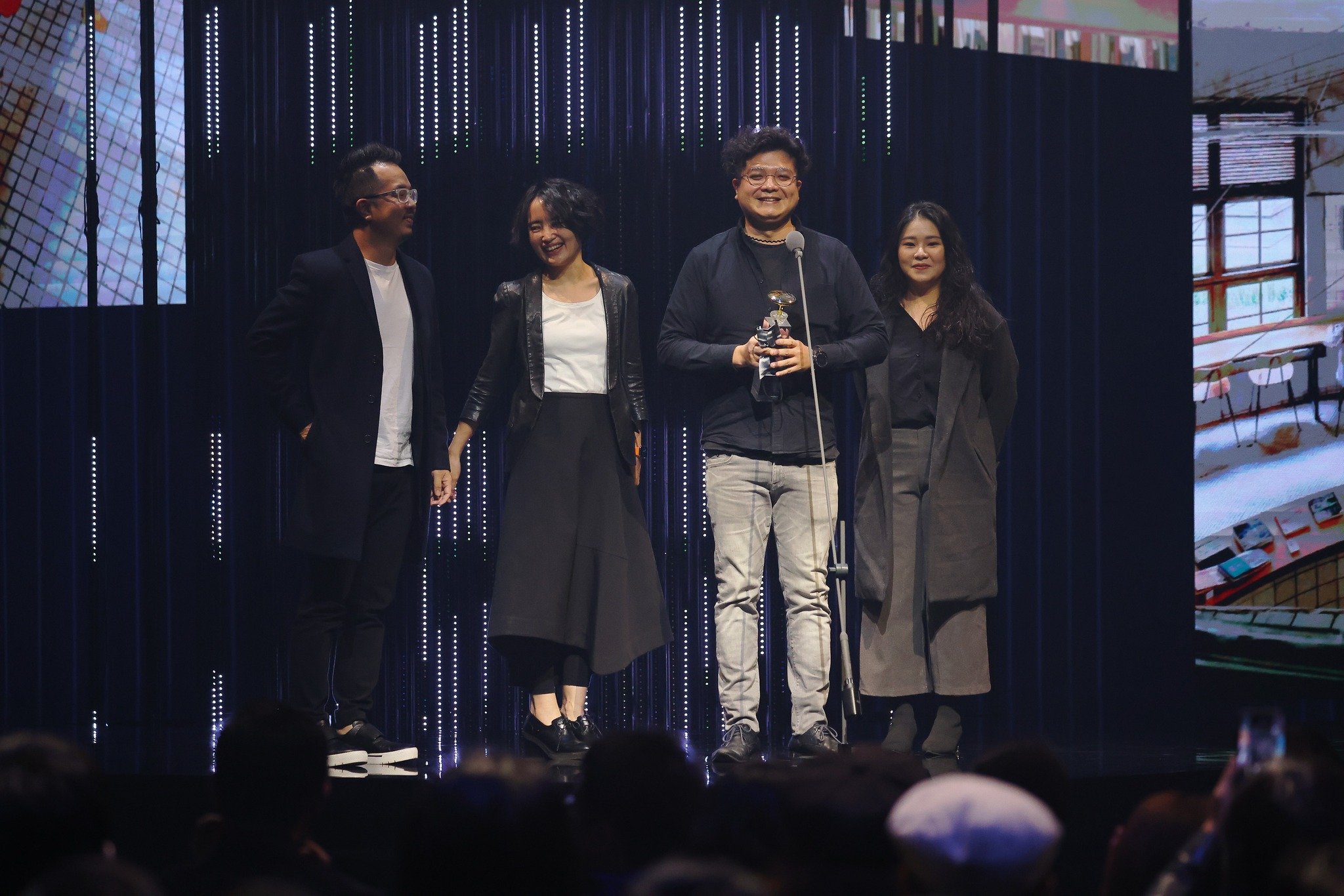

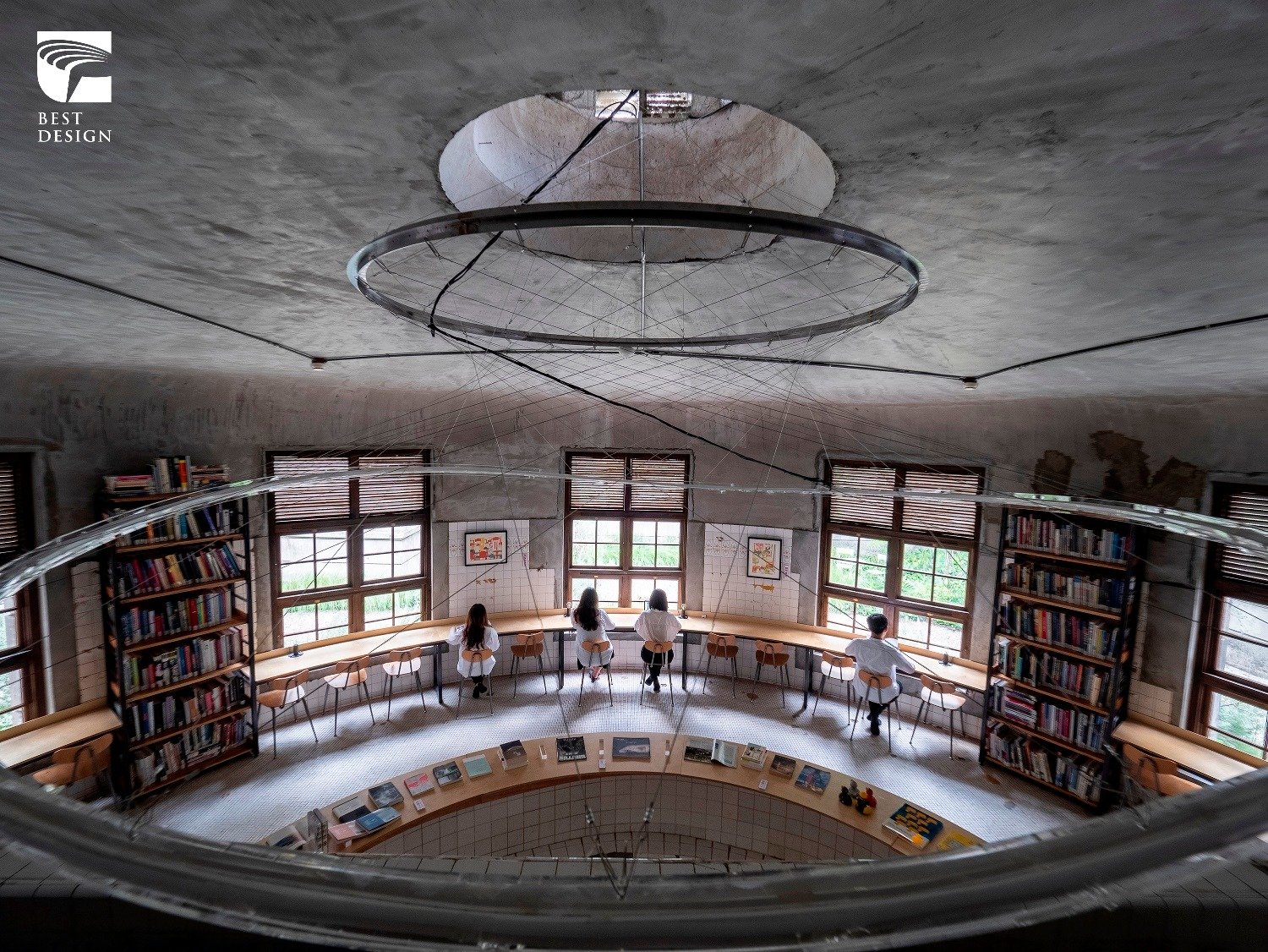
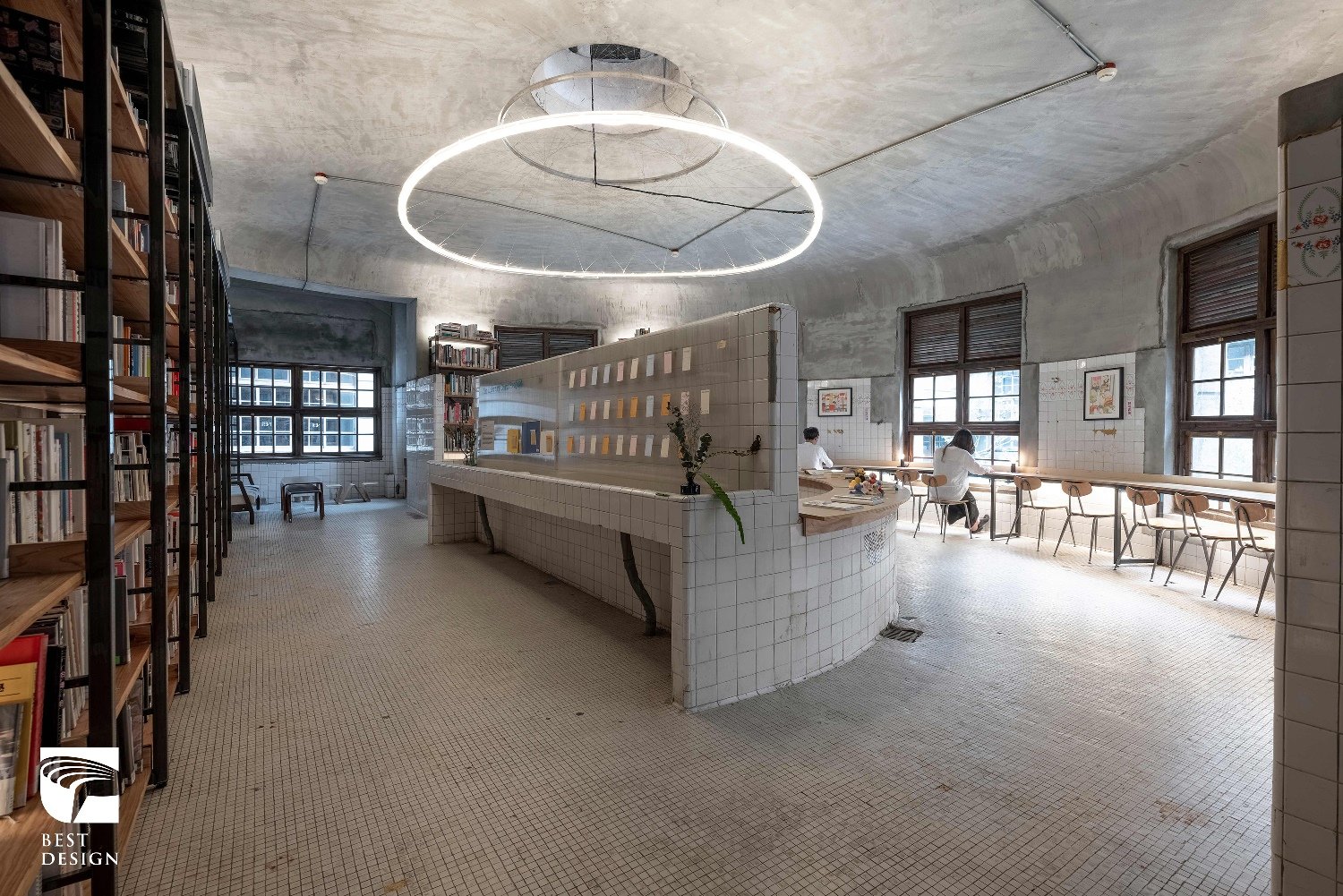
It would have to be when "Not Just Libraries" won the Golden Pin. I told them I would win the award when I first came in. The only time I've been on stage was for the Golden Pin, so I was proud of that moment. I've been in this industry for almost 20 years, and the atmosphere of receiving an award on stage for the first time is something I've never felt before.
In fact, "Not Just a Library" took a short time; the design took about half a month, and the construction took less than a month. Because of its storytelling, it can achieve a lot of publicity, so it's something to be proud of.
6:A Truth or Dare for Design Industry Peers
We have been talking about sustainability for many years, but I think it's all bullshit.
Sustainability is not possible in the architecture and interior design industry. All materials are still consuming the world's energy. The more environmentally friendly materials are so expensive that no clients will want to use them. Even if we use environmentally friendly materials, we will still add plastics and other environmentally unfriendly ingredients, making it impossible to achieve true sustainability.
Of course, it is not only by using environmentally friendly materials that we can be sustainable, just as JC. advocates that every Thursday is a sustainable day. Buying lunch using a lunch box is also considered sustainable, and purchasing coffee using your cup is also sustainable. Still, these behaviors are on a personal level, not an industrial level.
Note: If you have other ideas about sustainability, please feel free to come to JC. for a chat.
7:Could you share what your future would look like?
I didn't know I would stay in this company for so long. I want to see young friends grow stronger and surpass me. Because times are changing, it's natural that each new generation excels the previous. If that happens, I'll let go of my responsibility and do what I want to do. Maybe open an izakaya or a B&B complex on Orchid Island. I've been in the interior design business for so long (longer than Johnny and Nora in terms of years in the industry) that I'd like a change of scenery.
8:Is there a project that you want to do?
I've done residential, commercial, transportation, and exhibitions. I would like to do something bigger and more exciting and also learn something new, such as a zoo or an aquarium. I've been to Okinawa, Japan, and seen quite a few. Their zoos are incredible, and their aquariums are in a completely different realm.
Another thing to consider is remodeling an airplane because the interior of an aircraft could be more excellent.
9:Do you have any advice to share with the new JC. designers?
I think the most important thing for new designers is to be a child at heart. Initially, we were all enthusiastic and eager to do everything or participate in many different designs. Still, we may become depressed when we encounter many failures. When you are constantly criticized or rejected, your self-confidence will weaken, but you have to find out what is wrong with your design. What were the reasons that you couldn't convince clients or colleagues? Only in this way can you improve your design.
Maintain a child-like mindset, rechallenge yourself even when you fail, and understand the reasons for failure rather than dismissing others' criticisms. Negative feelings are bound to happen, but when you finish complaining, you need to go back and think about what went wrong with your design and then improve from there.
For more senior designers and PMs, I hope you don't forget your roots and don't become, in Taiwanese, a "back-bone kid (disloyal kid)"; that is, forget the company that taught you. Every company has good and bad points; no company is perfect. Even if you choose to leave a company, don't do anything to dishonor that company; those are all valuable experiences.
10:If your good friends are considering applying for a job at JC., how would you describe JC.?
I would say that JC. has a wide range of exciting design projects. There are some unexpected things to try, too. But they wouldn't be a good fit for our firm if they don't like to do things repeatedly, like changing drawings and proposals indefinitely. For example, our proposals have been reduced to three types, whereas there were 10-20 types before.
In addition to doing beautiful design, JC. likes to tell stories, so you should be able to tell stories. JC. is more of an experimental design company. It's like doing chemical experiments to keep trying and repeating A + B, B + C, to pop up a new thing; if you don't have such mentality and patience, you should not join us. Many colleagues said JC. had a diverse project, so they wanted to be part of it. But when they left the company, they said, "I think the company is not suitable for me because there are too many repeated operations."
Designers and anyone wanting to join JC should realize this unless you're joining JC. today as a pet, then you don't have to (laughs).
